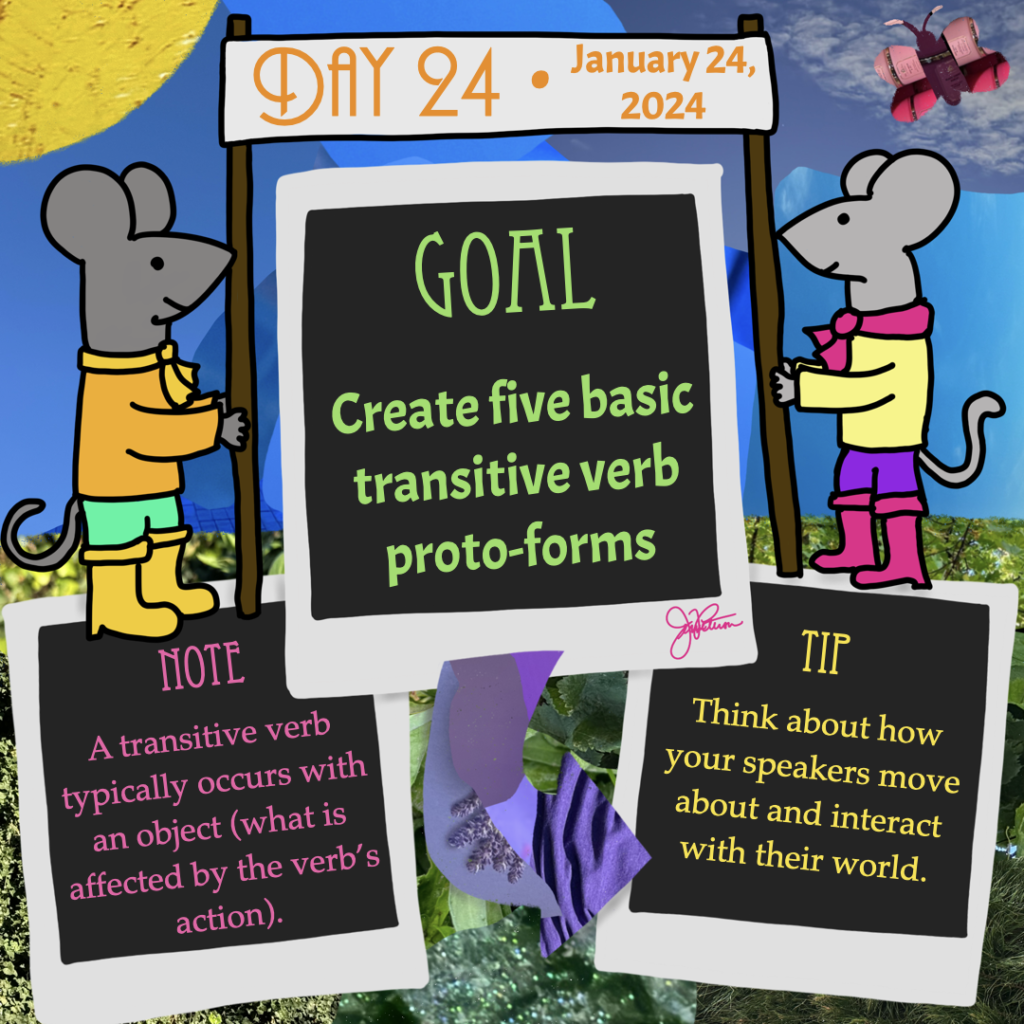
Goal: Create five basic transitive verb proto-forms
Note: A transitive verb typically occurs with an object (what is affected by the verb’s action).
Tip: Think about how your speakers move about and interact with their world.
Work focus: Create/Make/List
So far, the majority of the proto-forms you’ve made have likely been nouns (with the exception of the weather words, which may have been verbs or may still be undecided as to their grammatical category). Today’s prompt shifts focus to verbs, starting with at least five basic transitive verbs. Transitive verbs are those that typically occur with objects (or what is affected by the verb’s action). Common transitive verbs to begin with for these proto-forms are those that involve how your speakers interact with their surroundings.
Some common verbs that are basic roots are those involving food gathering and preparation, such as “to gather, to collect, to hunt, to plant, to crush, to grind, to cut, to chop, to bake, to roast.” Other common verbs involve making things, such as “to tie (together), to weave, to raise, to lift.” Interactions among speakers are common sources for basic verbs, too: “to feed, to wrap, to grasp, to hold, to hug.” You have so many options to choose from!
Whatever verbs you choose to create, make sure they are appropriate for your speakers and their world. If you are struggling to get started, then think about verbs that might take some of the nouns you created as subjects and/or objects. For instance, look at the flora nouns you created. What might your speakers do with those flora? Would they weave tall grasses together to make baskets? Gather sticks for kindling? As you think about those interactions with the world, you will naturally be compiling a list of verbs appropriate for your speakers and their world.
